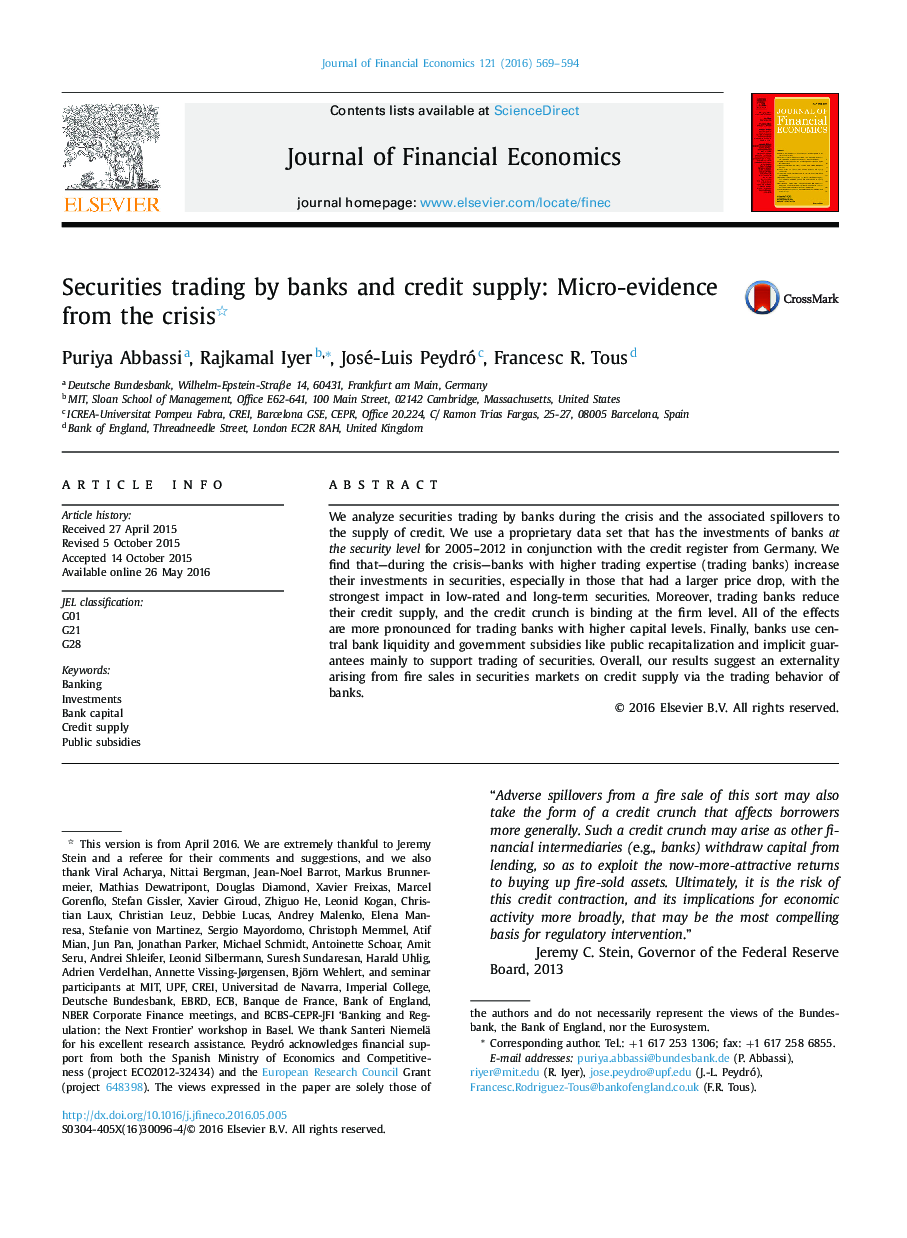| Article ID | Journal | Published Year | Pages | File Type |
|---|---|---|---|---|
| 959423 | Journal of Financial Economics | 2016 | 26 Pages |
We analyze securities trading by banks during the crisis and the associated spillovers to the supply of credit. We use a proprietary data set that has the investments of banks at the security level for 2005–2012 in conjunction with the credit register from Germany. We find that—during the crisis—banks with higher trading expertise (trading banks) increase their investments in securities, especially in those that had a larger price drop, with the strongest impact in low-rated and long-term securities. Moreover, trading banks reduce their credit supply, and the credit crunch is binding at the firm level. All of the effects are more pronounced for trading banks with higher capital levels. Finally, banks use central bank liquidity and government subsidies like public recapitalization and implicit guarantees mainly to support trading of securities. Overall, our results suggest an externality arising from fire sales in securities markets on credit supply via the trading behavior of banks.
